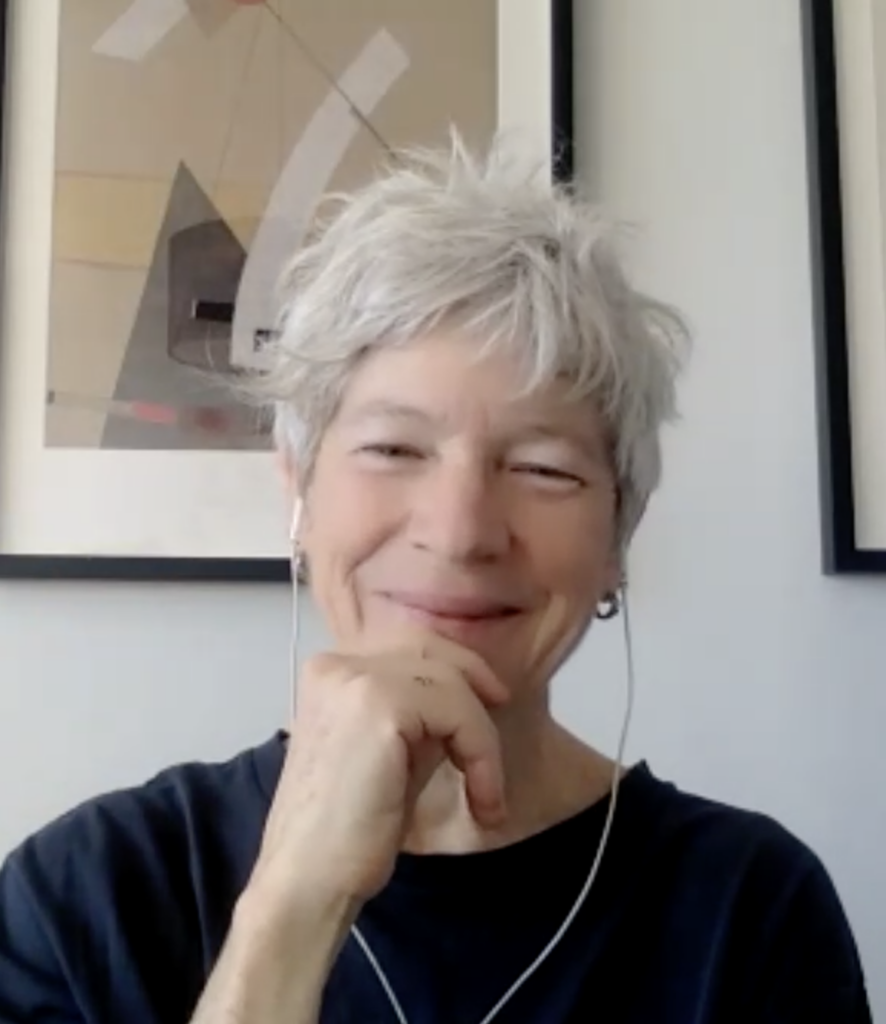
CLH: Is there a typical sound or sonic image that defines SuperMusique?
Lori: It would be hard pressed to describe a specific or „typical“ Supermusique sound. The group does so many different things, often with different people. But when I think about SuperMusique, I think immediately of Danielle and Joane — they are SuperMusique. If there is a typical sound, therefore, it is the sound of the musicians who they put together for any given piece or programme. They choose from a large, somewhat predictable pool of improvisers, although that pool is changing colours as we cross into the younger generations.
CLH: So it’s not just about the ensemble, but the people who drive it?
Lori: No matter whose concept or piece is being programmed and or directed, it is the players who do the sounding of it and that is the identifiable sound, the sound of those players.
CLH: Does SuperMusique reflect the sound of improvisation in Montreal?
Lori: Definitely, Supermusique reflects A sound of improvisation in Montreal. There are too many Montreal improvisors to be able to say that here is The Montreal sound. Supermusique is one of the longest-standing structures here, so it’s had a strong influence. But the Montreal improv scene is very diverse in terms of sound.
CLH: What would you say is the artistic identity of SuperMusique?
Lori: Curiosity. They take risks. It’s not about repeating the same aesthetic — it’s about exploring new ways to make music.
CLH: Would you consider SuperMusique a collective?
Lori: Not exactly. Danielle and Joane are clearly the leaders. But there’s a sense of shared creation within the projects. Everyone is encouraged to contribute ideas. It’s not top-down, but it’s not entirely flat either — it’s a kind of balanced leadership, certainly between Danielle and Joane but I don’t believe even they would define Supermusique as a collective.
CLH: Is there a noise or sound that, for you, represents Montreal?
Lori: The church bells! Every Sunday at noon, everywhere. And the sirens — very different from Europe. And honestly, the languages. It used to be mostly French in my neighbourhood, now I hear a lot more English. That shift is a sound too.
CLH: Do you think the geography or social fabric of Montreal shapes the music?
Lori: Yes I do believe that. For anywhere. Every place leaves a mark on how people create and listen…and think, and move, and…breathe.
CLH: Is SuperMusique’s activity important for the city?
Lori: Absolutely. It’s been operating for decades — an institution forcussed primarily on experimental art, this is rare in and of itself in North America. Supermusique creates space for experimentation, for artistic freedom. It’s part of the city’s cultural DNA at this point.
CLH: What about the audience — is there a typical audience for Ensemble SuperMusique projects in Montréal?
Lori: Each presenting organization in Montreal has its own audience including all of the crossover audience, those who go to concerts presented by different organizations. SuperMusique draws in an intergenerational audience. There are quite a few loyal Supermusique audience members who NEVER listen to any improvised music if it is not presented by or somehow related to Supermusique. However, there are also definitely Montreal audiences who go out to listen to improvised music who never go to Supermusique concerts.
CLH: What’s the role of freedom in the improvisatory music of SuperMusique?
Lori: When I am given a set of parameters and instructions of what to do in the improvisation, I try to be positive about them. They might present problems that I need to solve. And I think this is very much related to freedom. Generally, my approach to making music is one that could be „freedom“, in the sense that I try all of my life to give myself permission to not censor myself, to be curious in front of an audience.
CLH: If you had to eliminate one of these three — composition, improvisation, or concept — which would it be?
Lori: I’d drop “concept”. Improvisation and composition are essential — and sometimes, they’re the same thing. They are ways to directly make music whereas concept is not a means to make sound, it is derived from another part of the body, the top part.
CLH: What brings improvisers together — and what separates them?
Lori: Listening brings us together. The willingness to be in a space with others, without dominating. What separates us? Expectations — like when someone brings a pre-formed idea and doesn’t want to be affected by others. That is a kind of censorship and in improvising the only thing a player can not say is no.
CLH: What’s your favourite sound or noise?
Lori: Breath, when it’s slow and there’s a spiral in it.
CLH: Is there a musical note that is special for you?
Lori: I’m very drawn to Ab on the bass clarinet (Gb concert) . It resonates right through me and around me.
CLH: And an interval?
Lori: I really like the little ones these days, less than a half a tone, micro-tonal seconds.